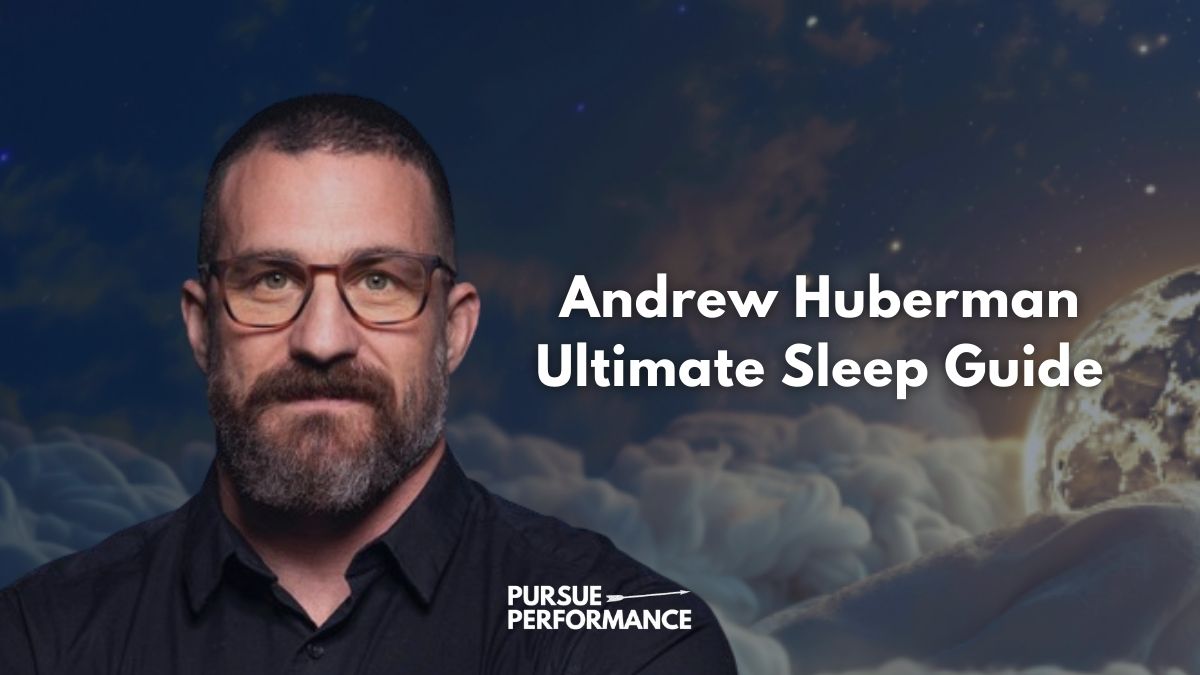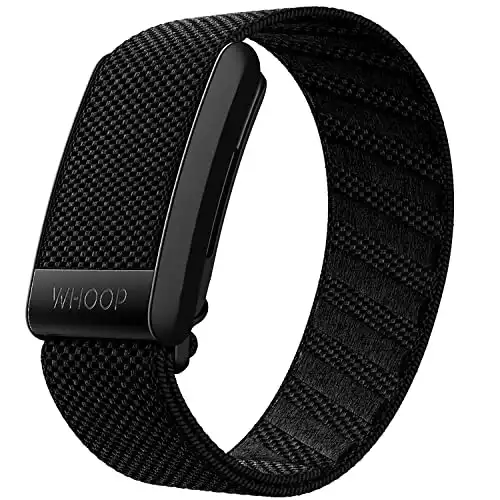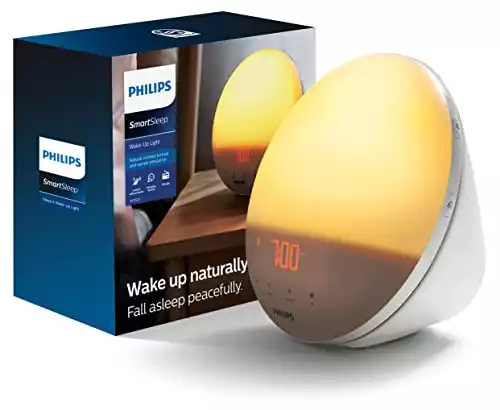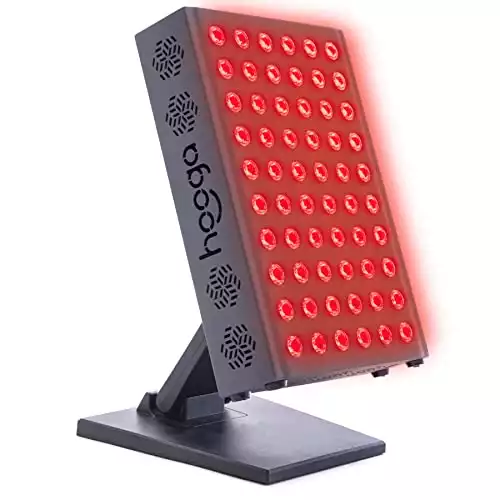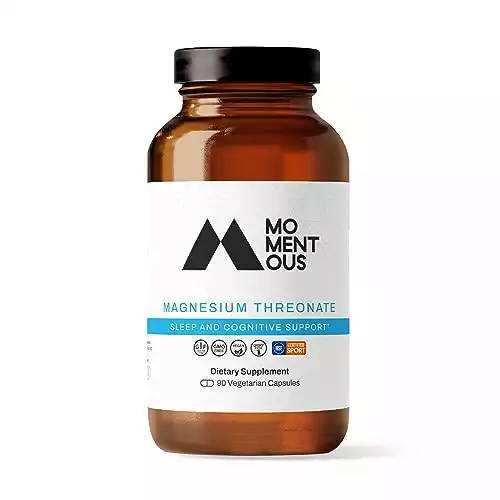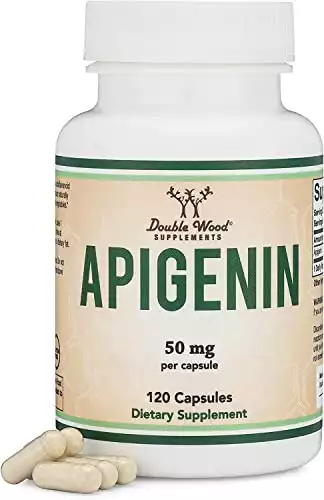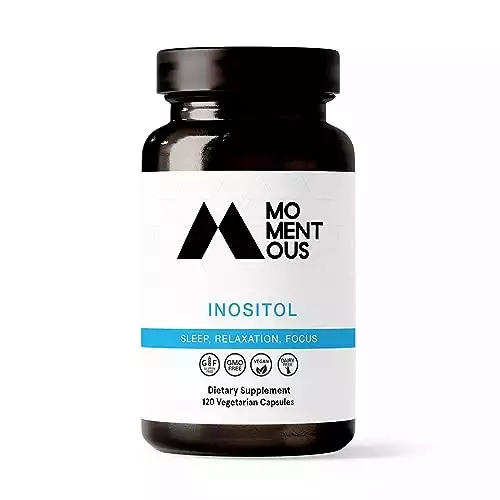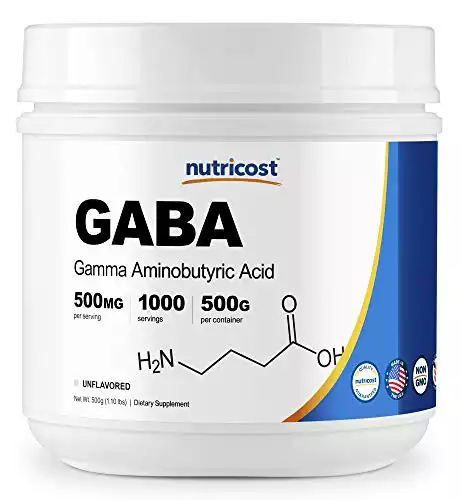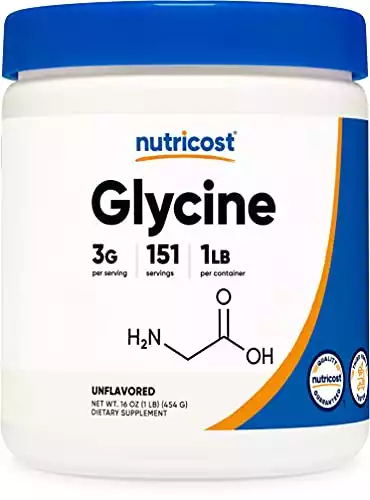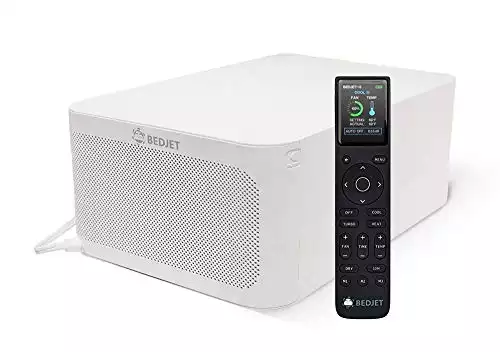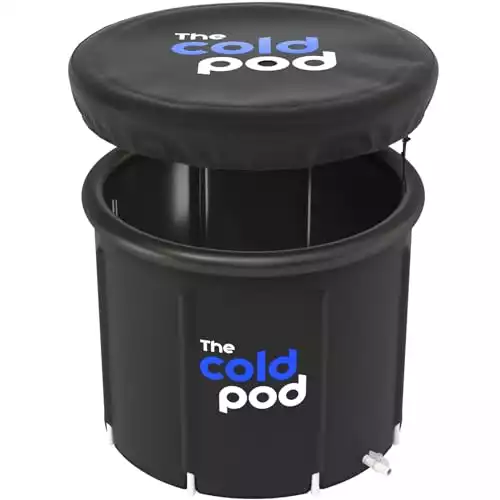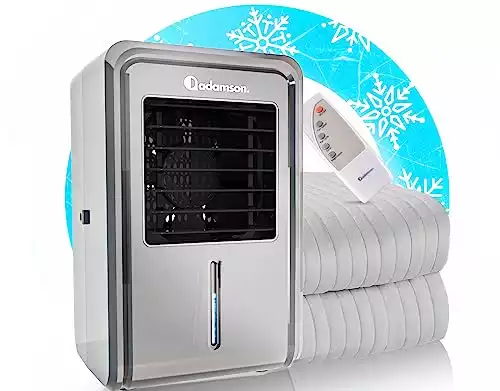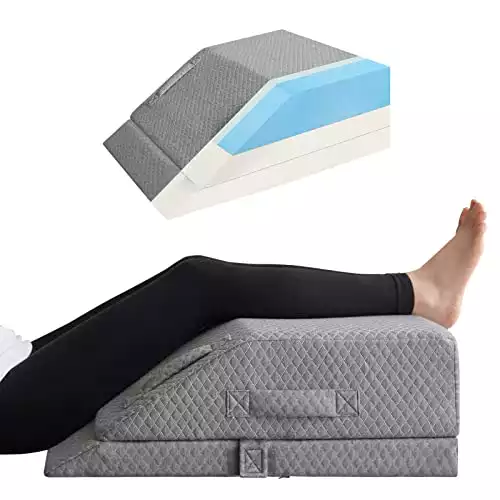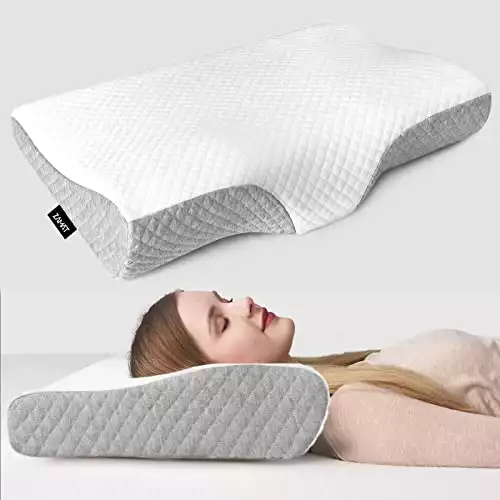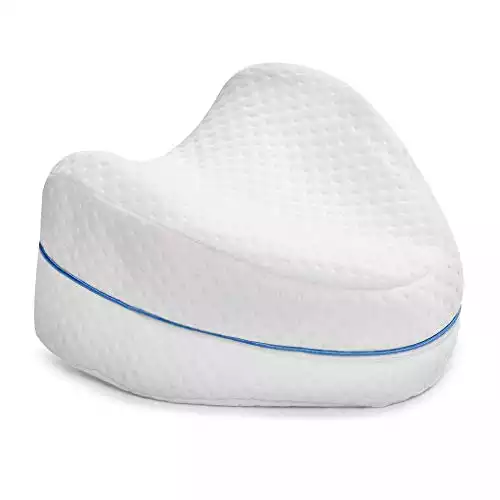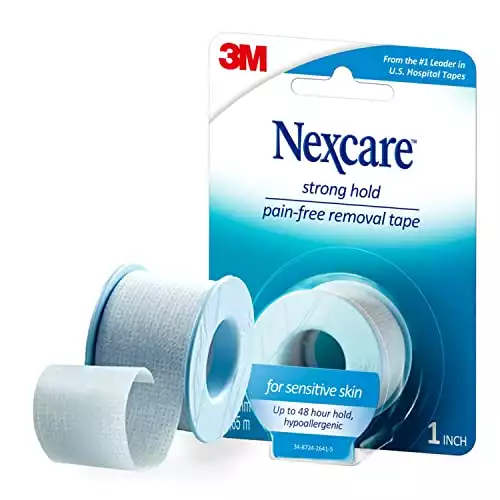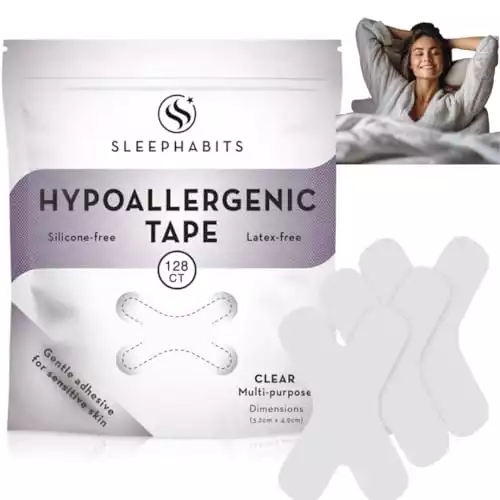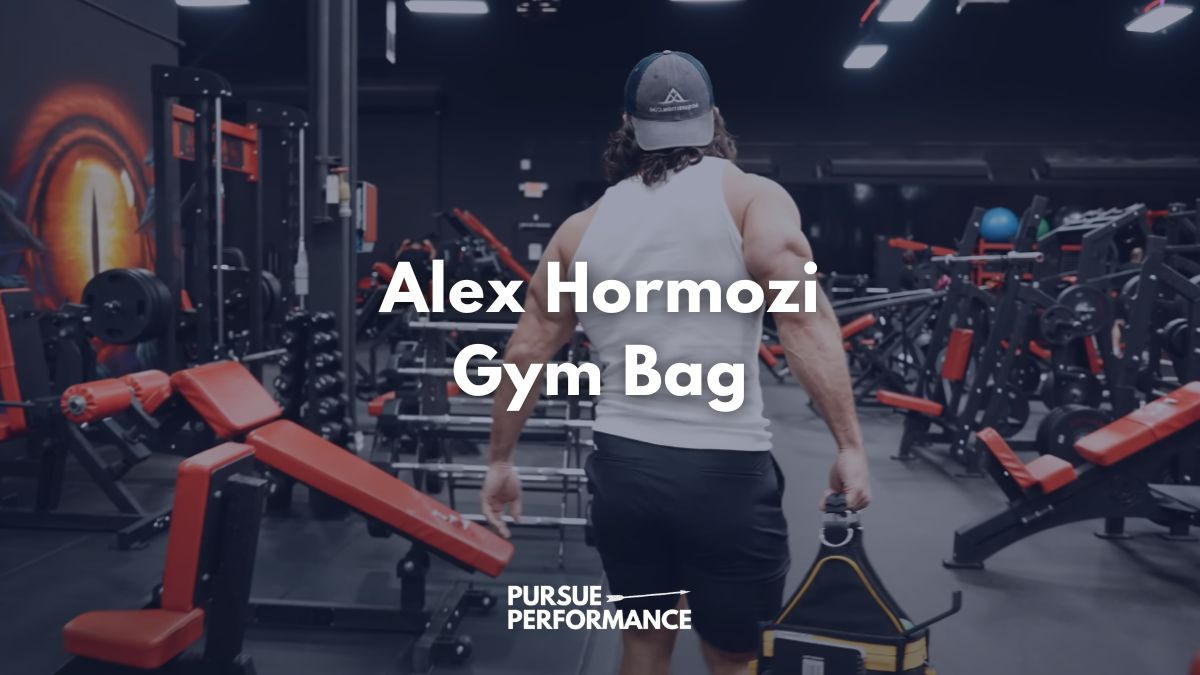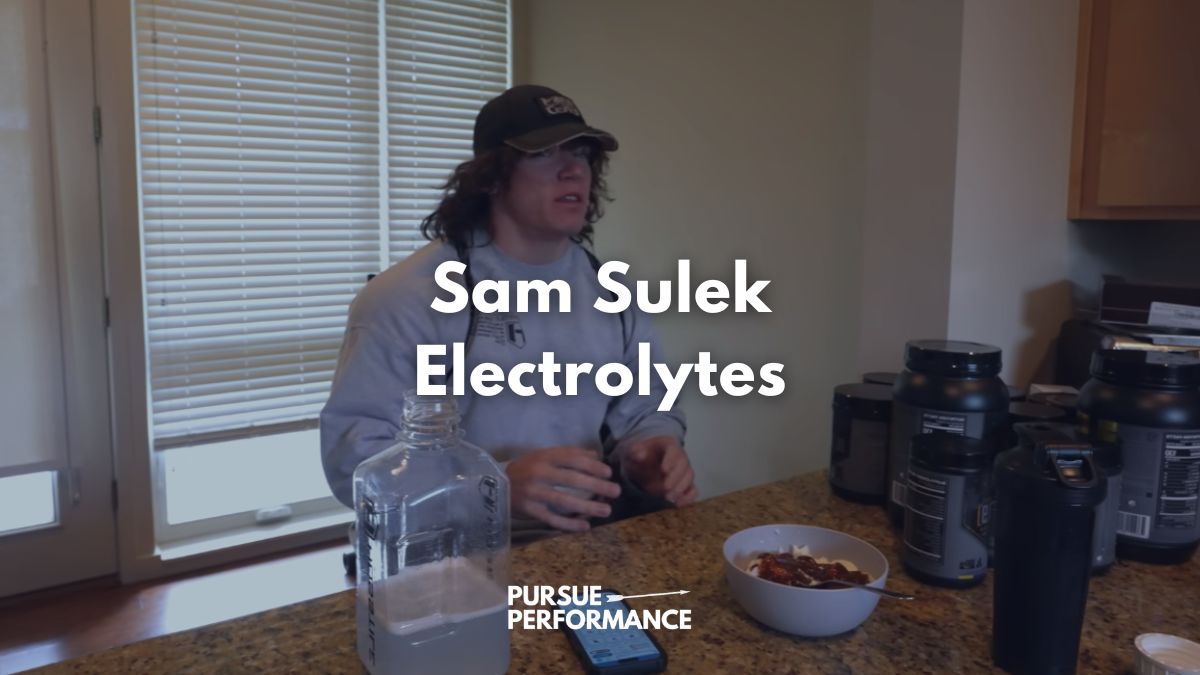According to Professor Andrew Huberman, sleep is a pillar of physical and mental health.
The renowned neuroscientist and professor has provided science-based sleep advice, outlining key tools and routines to improve sleep quality and duration.
In this post, we have compiled all of Professor Andrew Huberman’s sleep recommendations, including actionable ways to increase the quality and length of your sleep.
Top Picks
Supplements:
Magnesium Threonate: Momentous
Inositol: Momentous
Apigenin: Double Wood
Glycine: Nutricost
GABA: Nutricost Pure GABA
Melatonin [Optional]: Life Extension
Tools:
Mouth Tape: Nexcare Strong Hold
Mattress Cooler: BedJet 3
Blue Light Glasses: Prospek
Sunlight Alarm: Philips SmartSleep
Red Light: Hooga
Pillow: ZAMAT
Sleep Tracker: WHOOP 4.0
Andrew Huberman Sleep

Huberman emphasizes understanding your personal sleep cycle and getting the right balance of REM and deep sleep.
Sleep Cycle
As Huberman learned from sleep experts at Stanford, your sleep cycle follows a pattern of cycling between non-REM and REM sleep stages every 90-120 minutes.
Non-REM sleep contains light and deep slow-wave sleep, progressing from light to deep and back to light before entering REM.
He advises tracking personal sleep cycle variables like timing, duration, regularity, and quality of each stage.
- 24/7 health tracking
- Tracks science-backed metrics
- Monitor HRV & recovery
Huberman notes that even with sufficient total sleep duration, when sleep occurs relative to your circadian rhythm impacts how restorative it is.
For example, early risers feel best with an earlier sleep schedule.
Assessing how long you spend in slow-wave vs REM sleep provides insight into factors reducing sleep quality.
REM Sleep
Dr. Matthew Walker shared on the Huberman Lab podcast that REM sleep plays vital physiological roles, including emotional regulation, processing memories and new information, creativity, and restoring neurological balance.
REM is characterized by increased brain activity, rapid eye movements, muscle paralysis, and often dreaming.
Walker cautions that lack of sufficient REM sleep can seriously impact mental health, learning ability, mood regulation, cognition and brain homeostasis.
For example, REM dominates the second half of the nightly sleep period for most people. If you consistently wake before longer REM cycles, it may impair emotional recovery.
REM sleep is also sometimes associated with lucid dreaming, where individuals report having enhanced recall, memory, and control over their dreams.
Routine

Both Huberman and Walker emphasize the importance of a consistent evening routine for high-quality sleep.
This signals your physiology to start preparing for sleep.
Huberman focuses on practices like breathwork, meditation, body scanning, and gentle mobility exercises to activate the parasympathetic nervous system and calm your body and mind before bed.
He also advises writing down thoughts and planning the next day to reduce mental stimulation when trying to sleep.
Related: Andrew Huberman Hypnosis Protocol & Recommendations
Hours
While most adults need 7-9 hours of sleep per night, Huberman notes your exact sleep need can vary within or even outside that range based on factors like age, genetics, and health status.
Therefore, he advocates tracking how you feel subjectively at different sleep durations.
| Age Group/Condition | Sleep Needs per Night | Additional Notes |
|---|---|---|
| General Adult Population | 6-8 hours | 75-85% of adults fall in this range. |
| Exceptions (Rare) | 4-5 hours or 9-10 hours | Some adults may require significantly less or more sleep. |
| Teens | 8-10 hours, up to 12 hours | Teens generally need more sleep for growth and development. |
| Recovering from Illness/Injury | 8-10 hours, up to 12 hours | Additional sleep aids in recovery processes. |
| Babies | More than adults and teens | Babies require the most sleep for development. |
If you log 6 hours of sleep but don’t experience daytime fatigue or cognitive issues, you may be someone who needs only 6 hours.
However, if you feel exhausted, irritable or mentally foggy consistently on 7 hours, you likely need more sleep than average.
Quality, timing, and regularity play a key role alongside quantity.
Toolkit
Huberman’s sleep toolkit prioritizes behavior modifications for sleep hygiene first before relying on supplements or technology aids.
This includes optimizing light exposure, exercise, nutrition, and wind-down routines.
However, he does see a role for strategic supplementation and tech tools as well.
On tech, Huberman points to blue light-blocking glasses for the evening.
- Blocks 90% of high-energy blue light
- 8 advanced lens coatings
A sunrise alarm clock can help to stimulate circadian rhythms.
Emerging research on red light panels points to health benefits and the ability to manage light exposure.
- Adjustable stand
- US-based company
- 3 year warranty
For supplements, he and Walker developed a formula containing magnesium, apigenin, glycine, and theanine to enhance sleep signaling mechanisms in the brain without risk of dependence.
Related: Andrew Huberman Light Box Therapy Recommendation & Science
Andrew Huberman Sleep Supplements
Andrew Huberman recommends a blend of natural supplements to enhance sleep by targeting different mechanisms.
Magnesium
As Huberman explains, magnesium activates GABA receptors in the brain. Since GABA is the main inhibitory neurotransmitter, additional magnesium intake before bed relaxes muscles and nerves for more restful sleep.
However, different forms of magnesium can have varied effects.
For example, magnesium malate is more muscle-oriented, while magnesium citrate has more of a laxative effect.
Huberman therefore specifically recommends forms like magnesium threonate or magnesium bisglycinate for cognitive and sleep benefits from magnesium supplementation.
He advises taking approximately 400-800 mg, around 30 to 60 minutes before bedtime.
- Supports healthy sleep and recovery
- Better absorption vs. other forms of magnesium
- Developed in collaboration with Huberman Lab
When taken properly and with bioavailable forms like threonate or bisglycinate, Huberman notes “magnesium can really create terrific results by recovering some sleep lost during the night.”
Apigenin
Apigenin is a plant flavonoid derived from chamomile that can enhance both sleep onset and maintenance.
Huberman explains that apigenin increases enzymes related to GABA metabolism.
Since GABA is the brain’s main inhibitory neurotransmitter, apigenin exerts a net effect of boosted GABA signaling.
This GABAergic effect serves to relax the brain and “aid in shutting off thinking and rumination” before bed.
However, Huberman cautions apigenin may also inhibit estrogen levels. Therefore women looking to maintain current estrogen, or men seeking to support cognition/libido, should likely avoid apigenin.
In terms of dosage, Huberman advises: “50 milligrams of apigenin taken before sleep for its calming, forebrain-inhibiting effects.”
This can be taken alone or combined with his sleep stack containing magnesium threonate/bisglycinate and theanine.
Inositol
Huberman recommends 900mg of myo-inositol before bed to significantly improve sleep quality and depth. As he’s experienced, this supplemental dose enhances sleep without causing next-day drowsiness or insomnia upon middle-of-the-night awakenings.
- Improves sleep quality and duration
- Helps to balance mood
- Stimulates metabolism of serotonin
Myo-inositol is thought to increase serotonin levels in the brain, thereby reducing anxiety which indirectly benefits sleep.
While higher inositol doses are often used for conditions like OCD or mood disorders, Huberman has found 900mg sufficient for sleep improvement when taken every 3rd night or so.
Beyond a solo effect, myo-inositol may also enhance sleep quality when combined with magnesium threonate, apigenin and theanine.
According to Huberman, myo-inositol possesses anti-anxiety properties that can not only help fall asleep faster but also return to sleep more easily after night awakenings.
Related: Andrew Huberman Inositol for Sleep: Recommendations [2024]
GABA
GABA is the brain’s main inhibitory neurotransmitter. As Huberman explained, taking 100-200mg of supplemental GABA could help “turn off our thinking systems” and reduce rumination at night to assist with sleep transition.
However, he cautions not to take GABA every night for sleep. Huberman only uses GABA himself 2-3 nights per week so as not to build tolerance and undermine effectiveness.
Similarly, overusing GABA or glycine could also reduce results from other key supplements like magnesium, apigenin, or inositol.
Huberman advises cycling its use to avoid interfering with sleep benefits from his core recommended stack.
As he summarized: “Sleep supplements like GABA should not be taken daily…I advise against taking glycine and GABA too often as it may reduce the effectiveness of magnesium threonate, theanine, apigenin, and inositol.”
Glycine
Glycine is an amino acid and neurotransmitter that enhances sleep as part of Huberman’s personal stack.
He takes 2 grams of glycine every third or fourth night before bed, alternating with 100mg of GABA.
As Huberman shared, this combination greatly improves his ability to fall asleep.
However, he cycles glycine to prevent tolerance buildup, finding that otherwise “the entire sleep stack does not work as effectively.”
Research suggests glycine may improve sleep in multiple ways – by reducing core body temperature needed for deep sleep, increasing serotonin levels that raise melatonin production, and binding to receptors in the brain’s circadian clock.
By alternating glycine with GABA and scheduling both every few days, Huberman is able to leverage the sleep benefits without dependence. As he’s observed, properly timed and cycled glycine intake “greatly enhances the ability to fall asleep.”
Andrew Huberman Sleep Temperature
As Huberman explains, your body needs to decrease core temperature by about 2-3°F (1-2°C) to transition into deep sleep. This brain and nervous system cooling is essential for sleep initiation and maintenance.
Therefore, he advises keeping your bedroom environment cool or cold to reach this optimal sleep temperature.
As Huberman notes, you can leverage glabrous skin on palms, face, and feet to naturally shed heat at night by having a hand or foot sticking out from blankets.
He also suggests taking a hot bath/sauna followed by a cooler shower in the evening. This heat exposure causes compensatory physiological cooling that makes it easier to then fall asleep.
- 20% larger vs. average
- Multi-layer insulation
- Thermal protective cover
Conversely, an increase in body temperature can disrupt sleep by making it difficult to fall or stay asleep.
Huberman also discusses the circadian rhythm of core body temperature, which hits its lowest point a couple hours before waking, then rises upon waking and peaks later in the day before dropping again in the evening.
- Wake up less
- Feel more rested
- Improve your recovery
Understanding this rhythm allows strategic temperature modulation to improve sleep.
Even melatonin may help some people sleep by lowering body temperature besides impacting the circadian phase.
Ultimately, these strategies leverage the integral role body temperature plays in regulating sleep cycles.
- Significantly improves sleep scores
- Enhances sleep quality and consistency
- Complements other sleep hygiene practices
Huberman’s colleague Dr. Matthew Walker generally recommends bedrooms be set to around 65°F (18°C) for optimal sleep based on the natural temperature decrease needed to initiate sleep.
However, ideal sleep temperatures can vary based on personal preferences.
The key is cooling relative to your normal waking temperature.
Andrew Huberman Sleep Mattress

According to Huberman, choosing a mattress optimized for your natural sleep position and temperature regulation needs is critical for maximizing sleep quality and duration.
This is based on the biology behind how our bodies regulate temperature during sleep cycles.
Huberman explains that properly aligning your spine and joints in your preferred sleep position also minimizes next-day pain and restless nights from strained muscles.
| Sleep Position | Mattress Recommendations |
|---|---|
| Side Sleepers | Shoulder and hip cradling support to avoid over-rotated spine. Recommended loft pillow. |
| Back Sleepers | Lumbar support for natural spinal curvature. Recommended loft pillow. |
| Stomach Sleepers | Firmer mattress preventing hip sinkage and lower back arching. Recommended soft, flat pillow. |
Each position requires proper cushioning and support.
For example, side sleepers need shoulder and hip cradling to avoid over-rotated spines.
Back sleepers require lumbar support.
And stomach sleepers need a firmer mattress preventing hip sinkage.
Huberman suggests mattresses allowing advanced cooling and body-contouring comfort by sleep position for truly restorative sleep.
His top science-backed mattress pick is the Eight Sleep Pod with dynamic heating and cooling technology programmed precisely to facilitate the ideal 1-3°F core temperature decrease overnight.
This temperature regulation maximizes time spent in restorative slow-wave and REM sleep by optimally facilitating natural circadian biology.
For existing mattresses, Huberman recommends the Eight Sleep Pod Cover to upgrade any mattress with adjustable heating, cooling, and sleep tracking sensors to inform optimal temperature settings overnight.
Andrew Huberman Sleep Pillow
When selecting a pillow for optimal sleep, Huberman advises choosing one that supports your preferred sleep position and spinal alignment.
The proper pillow height and firmness can also help facilitate body heat dissipation.
Specifically, Huberman notes benefits from side sleeping or sleeping with your feet slightly elevated.
These postures improve circulation and drainage of brain waste products via the glymphatic system during sleep.
- Unique ergonomic 'pocket' design
- Promotes healthy sleep positions
- 365 day warranty
The key is finding an option that feels comfortable long-term and keeps your neck aligned with the rest of the spine.
Related: Longevity Expert Bryan Johnson Pillow Recommendation
As Huberman summarizes regarding his own setup, small tweaks like “sleeping on one’s side or with feet slightly elevated” can go a long way towards improving sleep quality by optimizing waste clearance from the brain.
When shopping for a pillow, keep your preferred orientation and support requirements in mind.
Andrew Huberman Sleep Tape
Huberman discusses mouth taping during sleep as a potential method to encourage nasal breathing and improve sleep quality. As he explains, taping your mouth shut at night can shift you from being a mouth breather to nose breather.
Nasal breathing offers benefits like increased oxygen intake, greater CO2 offloading, reduced sleep apnea/snoring, and lower cortisol levels. Elevated nighttime cortisol from breath holding can negatively impact hormone balance, including testosterone and estrogen.
More broadly, Huberman notes nasal breathing enhances general respiration patterns and lessens breathing-related sleep disruptions.
However, Huberman cautions to implement mouth taping carefully using specialty tape that allows mouth opening if needed.
As with any sleep aid, he advises starting cautiously under a doctor’s guidance based on your unique risks and objectives.

